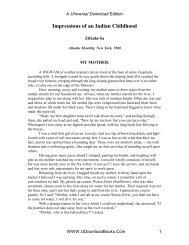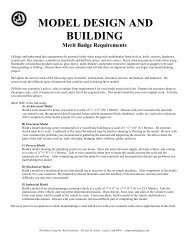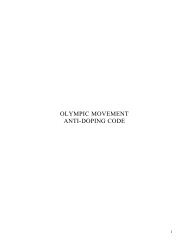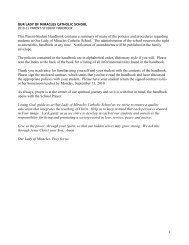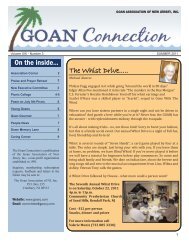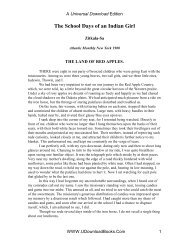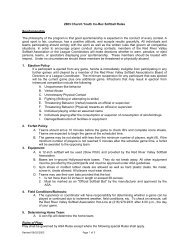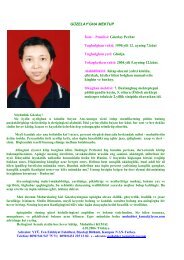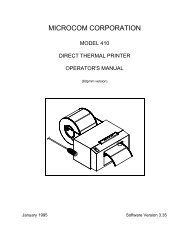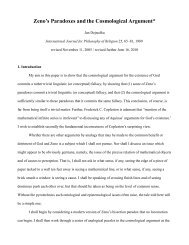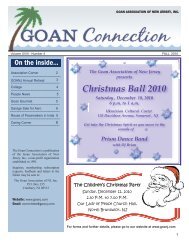Dummett's Backward Road to Frege and to Intuitionism - Tripod
Dummett's Backward Road to Frege and to Intuitionism - Tripod
Dummett's Backward Road to Frege and to Intuitionism - Tripod
Create successful ePaper yourself
Turn your PDF publications into a flip-book with our unique Google optimized e-Paper software.
As <strong>Frege</strong> explains in a third text in another letter <strong>to</strong> Russell:<br />
Now a class cannot be the sense of a sign, but only its meaning [i.e. reference], as Sirius<br />
can only be the meaning of a sign, but not its sense. Hence a class cannot be the indirect<br />
meaning of a sign, any more than Sirius can....Can any class whatever be a component<br />
part of a thought? No more than the planet Jupiter can. A class...can be defined in<br />
different ways....If the class was part of the thought that an object p belonged <strong>to</strong> it, then<br />
the change in the sense of the class name would not affect the thought, provided that the<br />
class itself remained unchanged....<br />
Or does a proposition have a meaning [i.e. reference], <strong>and</strong> this is a thought? If<br />
the latter, then the propositions ‘2 3 > 7’ <strong>and</strong> ‘3 2 - 1 > 7’ would have <strong>to</strong> designate the<br />
same thought; [for they have the same reference]. Now the thoughts contained in those<br />
propositions are evidently different....We are thus compelled <strong>to</strong> regard a thought as the<br />
sense of a proposition. (1980a: 157, my emphasis; see 158)<br />
Note that logical equivalence is not the test of identity of thoughts. The natural reading is that since<br />
objects are cus<strong>to</strong>mary references, <strong>and</strong> cus<strong>to</strong>mary references remain the same across changes in sense,<br />
no objects are senses. That is, the most general reason why objects are not senses is that all cus<strong>to</strong>mary<br />
references, including objects, are extensional in sense (2) <strong>and</strong> senses are intensional in sense (2). <strong>Frege</strong><br />
is telling us that we do not underst<strong>and</strong> his solution <strong>to</strong> his puzzle about informative identity statements<br />
unless we underst<strong>and</strong> that no senses are objects or functions.<br />
<strong>Frege</strong> repeats this in a fourth text in “[Notes for Ludwig Darmstaedter]”:<br />
[T]he object <strong>and</strong> concept are not constituents of the thought expressed....A distinction<br />
50




